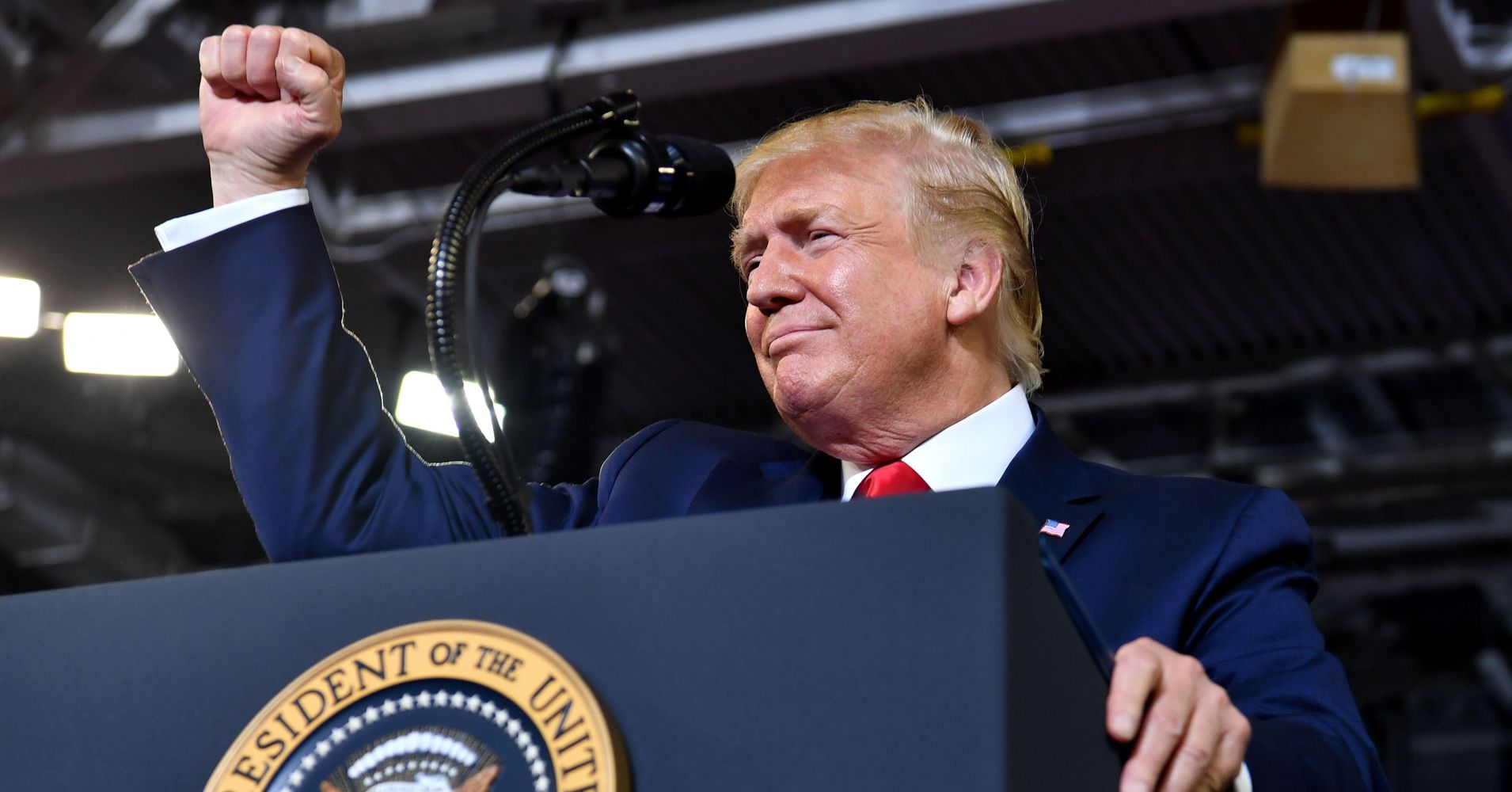[ad_1]

On Wednesday night in North Carolina, the president of the United States renewed his attacks on four freshman Democrats in Congress, all American women of color, in what many are calling Donald Trump’s most hateful and bigoted rally yet.
At the event, thousands of his supporters chanted, “Send her back,” calling on the president to deport Rep. Ilhan Omar (D-Minn.). Omar responded in a tweet: “I am where I belong, at the people’s house and you’re just gonna have to deal!”
Muslim leaders and communities of color were deeply alarmed by Trump’s racist rhetoric attacking Omar and fellow Reps. Alexandria Ocasio-Cortez (D-N.Y.), Rashida Tlaib (D-Mich.) and Ayanna Pressley (D-Mass.), but they were not surprised.
“We have seen a sort of a trajectory of the president using his platform to perpetuate hateful things and we don’t have enough people speaking out to condemn that,” said Madihha Ahussain, the special counsel for anti-Muslim bigotry at Muslim Advocates. “Quite frankly, there’s too many people that are staying silent, whether it’s Democratic and Republican parties across the country.”
Human rights advocates and other critics have long warned against Trump’s xenophobic and Islamophobic language and policies, which set the stage for Wednesday night’s racist rally. Political observers say the attacks will likely intensify as Trump and the GOP leverage smear campaigns and bigotry as a 2020 election strategy.
Ahussain also warned about a potential rise in hate crimes, which usually follows such rhetoric from the president and his followers. According to FBI data, more than 7,100 hate crimes were reported in 2017, with nearly 3 out of 5 attacks motivated by race and ethnicity.
The fact that people at Trump’s rally felt emboldened to call for Omar’s deportation even though she is an American citizen is rooted in U.S. nation-building ideology and how that has been weaponized against “non-white bodies,” according to Nimo Abdi, an assistant professor at the University of Minnesota who focuses on race, gender and immigration issues.
“The idea that citizenship and nation-building are interconnected with race, and there are some bodies that would never be part of it” is why “European immigrants would never be told to go back,” Abdi told HuffPost.
“It doesn’t matter if brown and black people have been in this country for generations. They’re still not part of the nation,” she added.
During the rally, Trump called out Omar and the other congresswomen by name, spewing falsehoods about them. He claimed that Omar, who is a refugee from Somalia and one of the first Muslim women in Congress, supported al Qaeda and “minimized the September 11 attacks on our homeland.” Both accusations are not true.
“Donald Trump is exploiting the deepest fears and anxieties of the public,” said Ibrahim Hooper, the national communications director at the Council on American-Islamic Relations (CAIR).
“People on all parts of the political spectrum need to really take stock of where we’re at and to decide whether we’re going to go down this road, because we’ve seen other societies going down this road, and it doesn’t end up in a pretty place,” he said.
The rally came days after Trump’s racist Twitter tirade on Saturday telling the four congresswomen they should “go back and help fix the totally broken and crime infested places from which they came.” Despite a national outcry, the president doubled down and defended those tweets the next day at a White House event. By Tuesday, House lawmakers passed a resolution condemning Trump’s tweets in a contentious vote that split almost entirely along party lines.
But people are not hopeful that the resolution will bring any change.
“This is just the beginning,” said Abdi. “It’s going to get worse before it gets better.”
REAL LIFE. REAL NEWS. REAL VOICES.
Help us tell more of the stories that matter from voices that too often remain unheard.
[ad_2]
Source link

